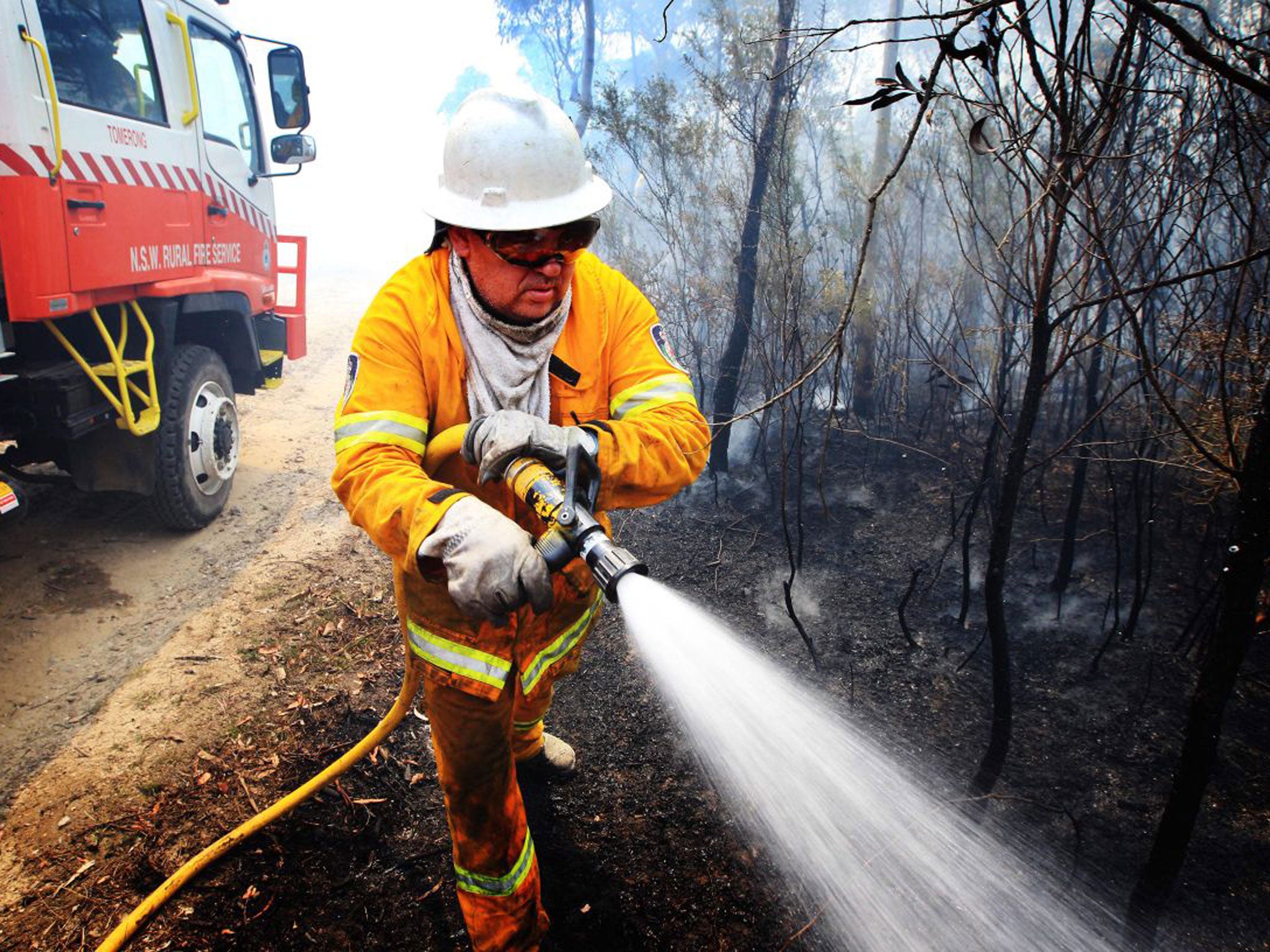My journey into Australia’s boiling heart (but could I fry an egg?)
Tempers are fraying in the town where it is 45C in the shade. Kathy Marks reports from Bourke

As they listened to news bulletins about Sydney wilting in temperatures of 42C (108F) earlier this week, people in Bourke chuckled. "All that fuss over 42 degrees," scoffed one local yesterday. "Mate, if we were down there, we'd be wearing jumpers."
They're made of stern stuff in Bourke, a dry, dusty Outback town 500 miles west of Sydney, where week after week of above 40C temperatures is not uncommon in summer. The current conditions, though, are testing even their patience. Yesterday was a suffocating 45C in the shade. Today is forecast to be at least two degrees hotter.
I had flown to Dubbo, a regional town, and then driven for four hours to reach one of the epicentres of Australia's worst heatwave on record. I found people trying to escape a heat so oppressive it was difficult to breathe – a place where roads were melting and even air-conditioning units were breaking down.
A blast of heat such as I'd never before experienced assaulted me when I got out of the car. Crossing the road was a strange experience. The tarmac felt soft and spongy underfoot. Metal surfaces were so hot that a broken egg started to fry on my car bonnet, before slithering off on to the sizzling road.
Bourke is a service town for the region's vast cattle stations and cotton industry. It is also one of the hottest places in Australia. While it has – so far – escaped the bushfires still raging in Tasmania, Victoria and New South Wales, its inhabitants are experiencing weather conditions that can only be called brutal.
Yesterday afternoon there were few people out in what is normally called the fresh air. They were staying home, with the curtains drawn and the air-conditioning on full blast, or seeking refuge in cool public spaces such as the library or bowling club.
The evening brought scant respite; at 8pm it was still a furnace-like 43C. At the Port of Bourke pub, near the Darling River, a gaggle of smokers was standing on the veranda, where a misting sprinkler system was saving them from heatstroke. Inside, although it was Friday night, the bar was sparely populated, with only a dozen or so drinkers watching televised cricket.
"People just don't go out," Lachlan Ford, the pub owner and manager, said. "Though once they get here and get settled in, they don't move much." He recently bought a digital weather station. At 4pm yesterday it registered 49.7C in the sun.
Accustomed to a harsh landscape and desert-style climate, townsfolk affect nonchalance in the face of blistering heat. Yesterday many were keen to talk about a "cool change" the previous day. "It was 38C," said Phil Johnston, manager of tourism and development at Bourke Shire Council. "It was beautiful. We mow the lawn at 38C."
"People actually like the heat. You get used to it," Aimee Sutton, who works in a café that has been doing brisk business in ice-creams, said. But she admitted it was difficult keeping her four-year-old son indoors, apart from trips to the town pool where locals congregate after work.
In the supermarket car park, tempers were frayed. "Just get in the bloody car now. It's bloody 45 degrees," one frazzled woman admonished her child. "Everyone's complaining, saying they've not seen it this bad for years," said Robbie Olsen at the Back O'Bourke Exhibition Centre, which celebrates Bourke's Outback roots.
Settled in the mid-19th century, Bourke became a prosperous river port, sending wool to Melbourne and Adelaide to be shipped overseas. As prices declined, so did the town. Now home to about 3,000 people, it relies heavily on irrigated agriculture.
On days like yesterday, those who work indoors count themselves fortunate. Ms Sutton's brother spent eight hours in a paddock picking sunflower seeds. "It's not much fun fencing in this heat, I can tell you," Mariana Simpson, a local sheep farmer, said.
Fridges and freezers are labouring in the heat, which is also straining domestic air-conditioning units to the limit. "They can't cope when you get to 40/41 degrees," Mr Johnston said.
A degree of trepidation could be detected in locals looking ahead to even more ferocious temperatures at the weekend. "Forty-seven degrees – that is warm," Mr Johnston admitted as he headed to the pool, towel slung over one shoulder.
Join our commenting forum
Join thought-provoking conversations, follow other Independent readers and see their replies
Comments
Bookmark popover
Removed from bookmarks